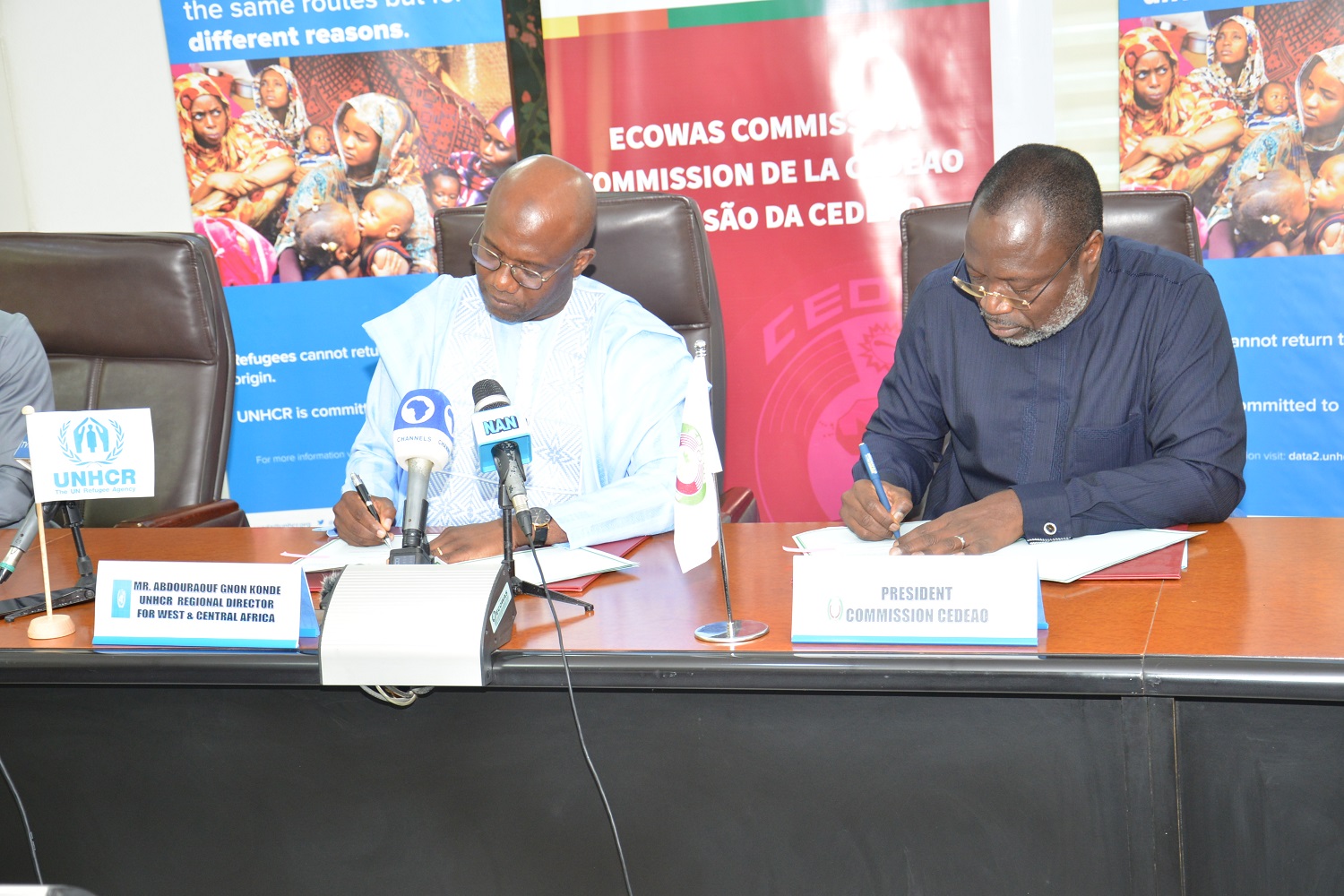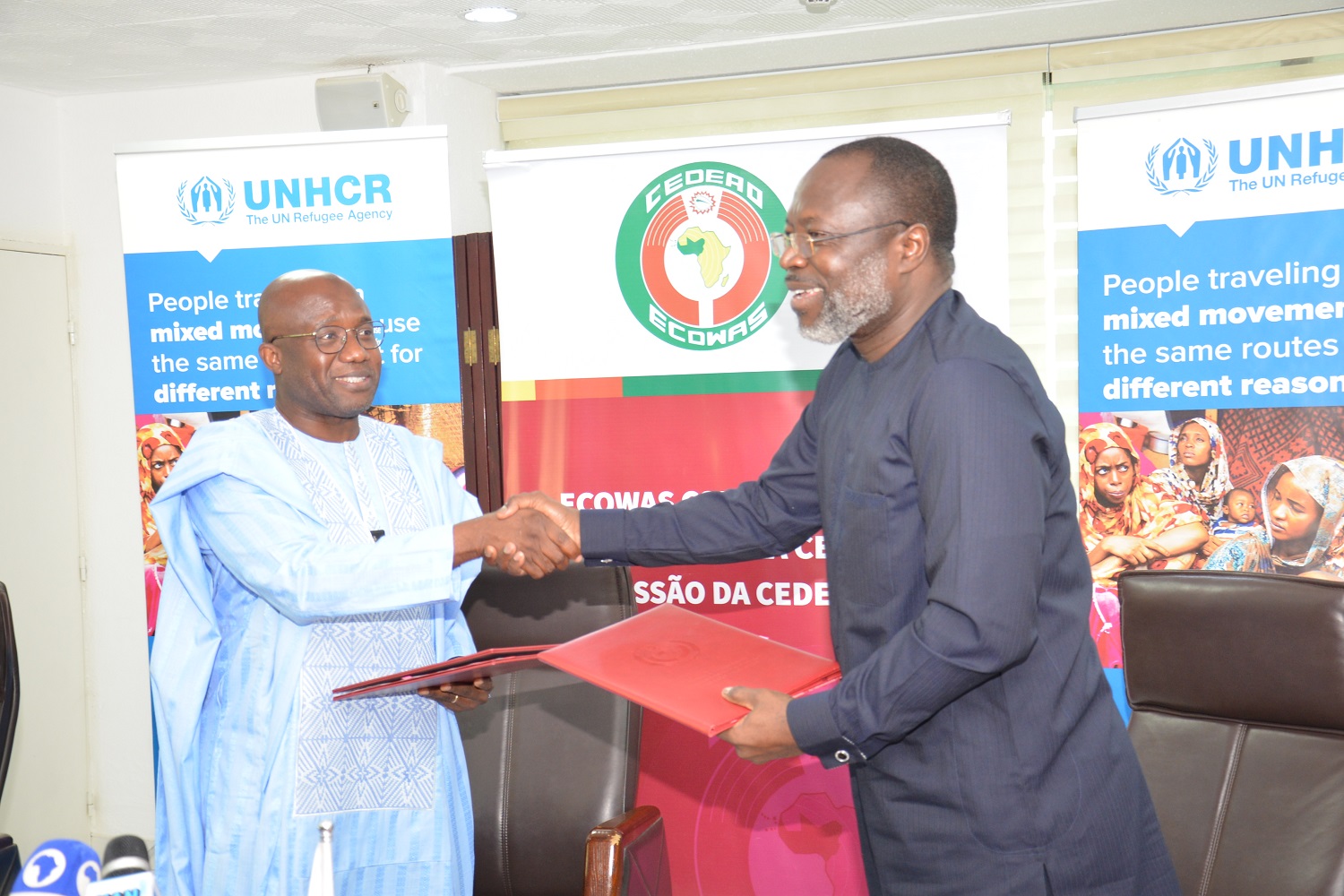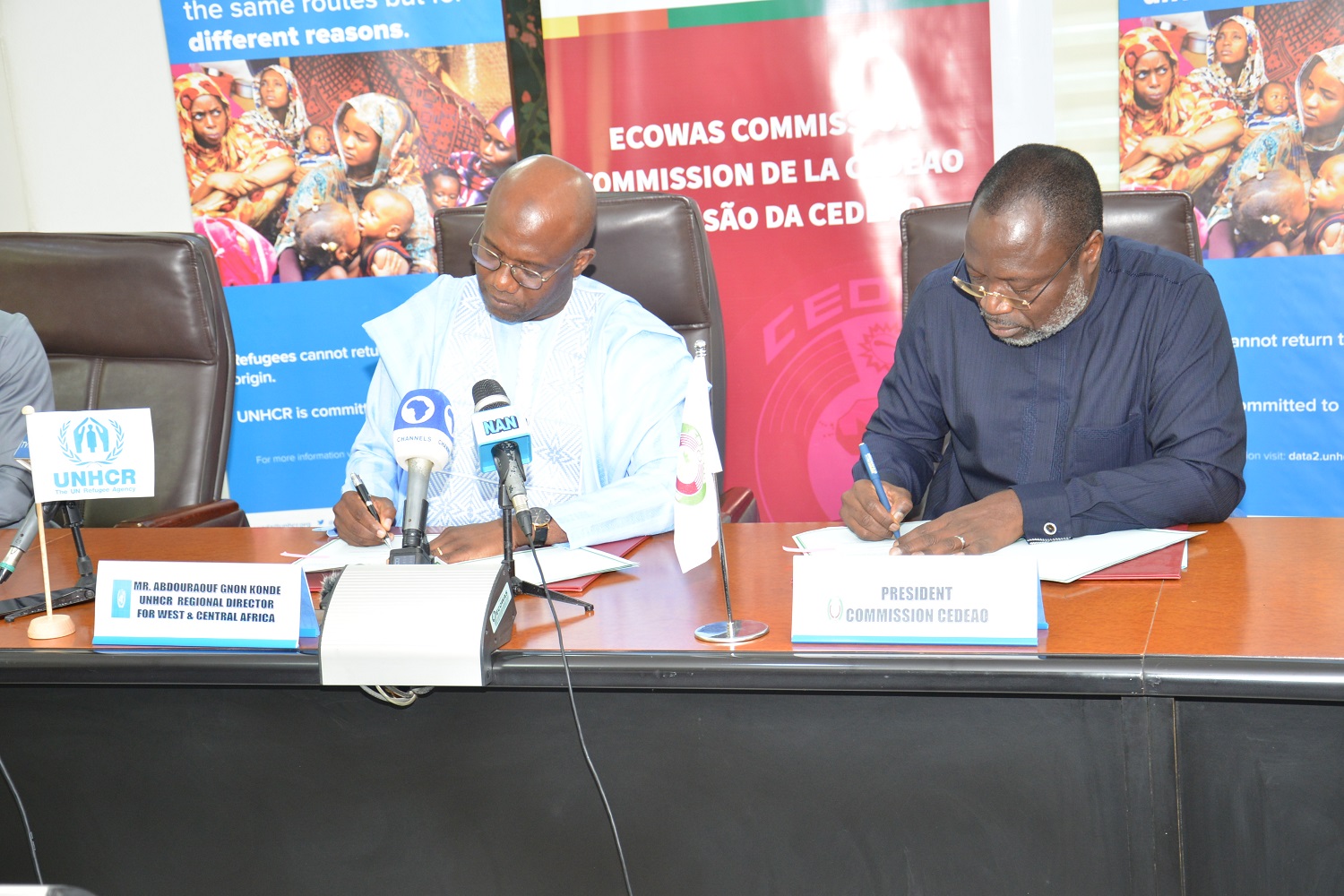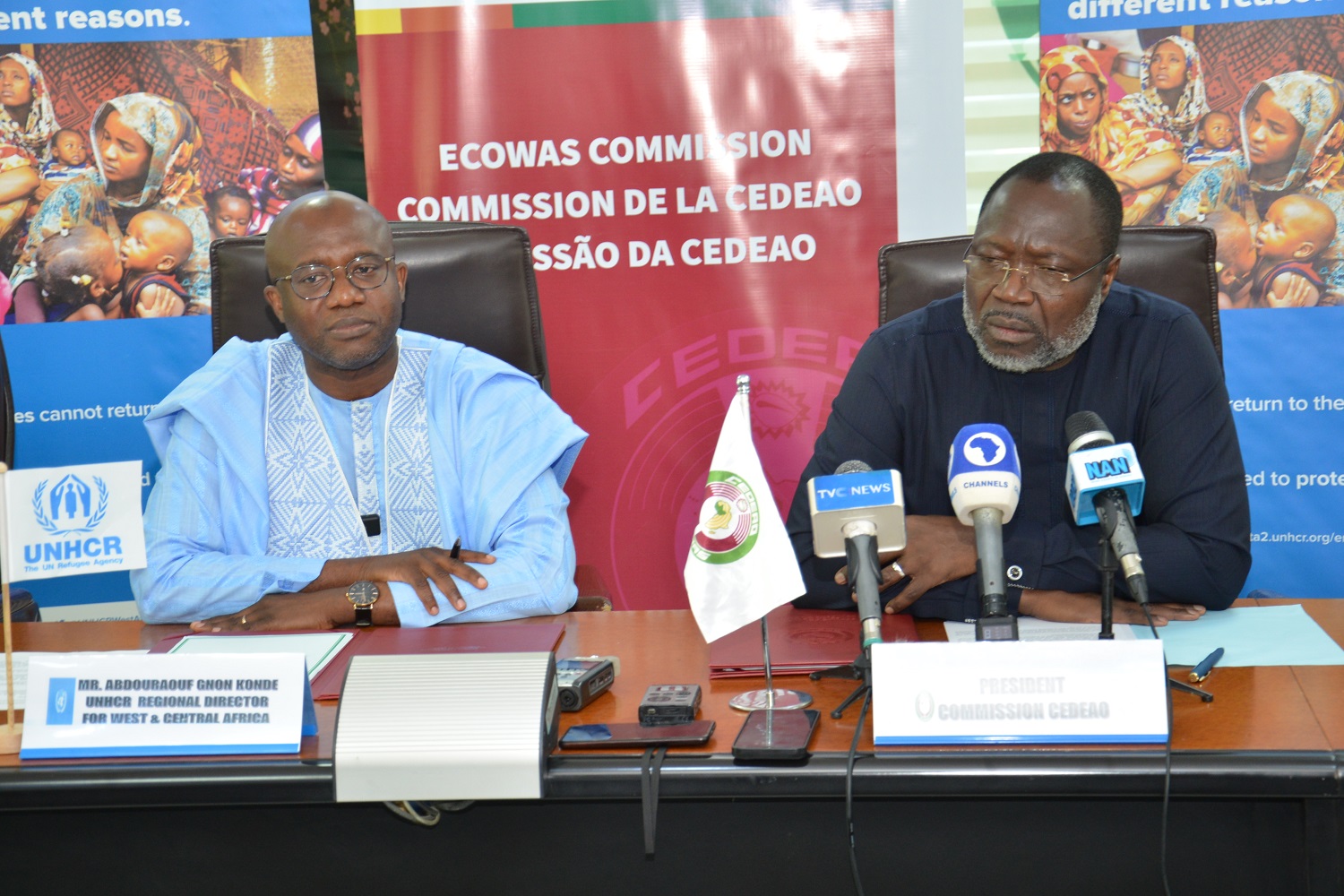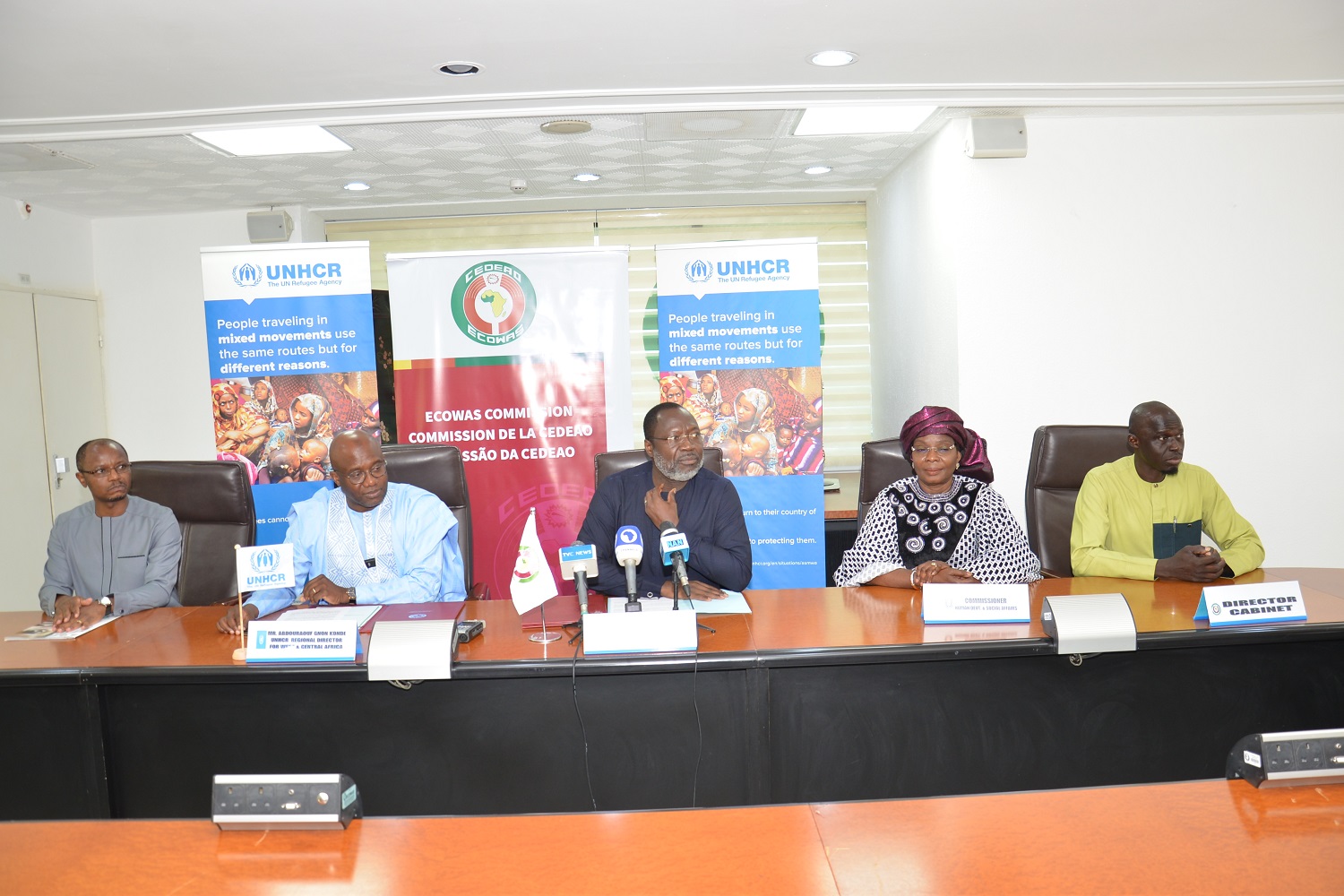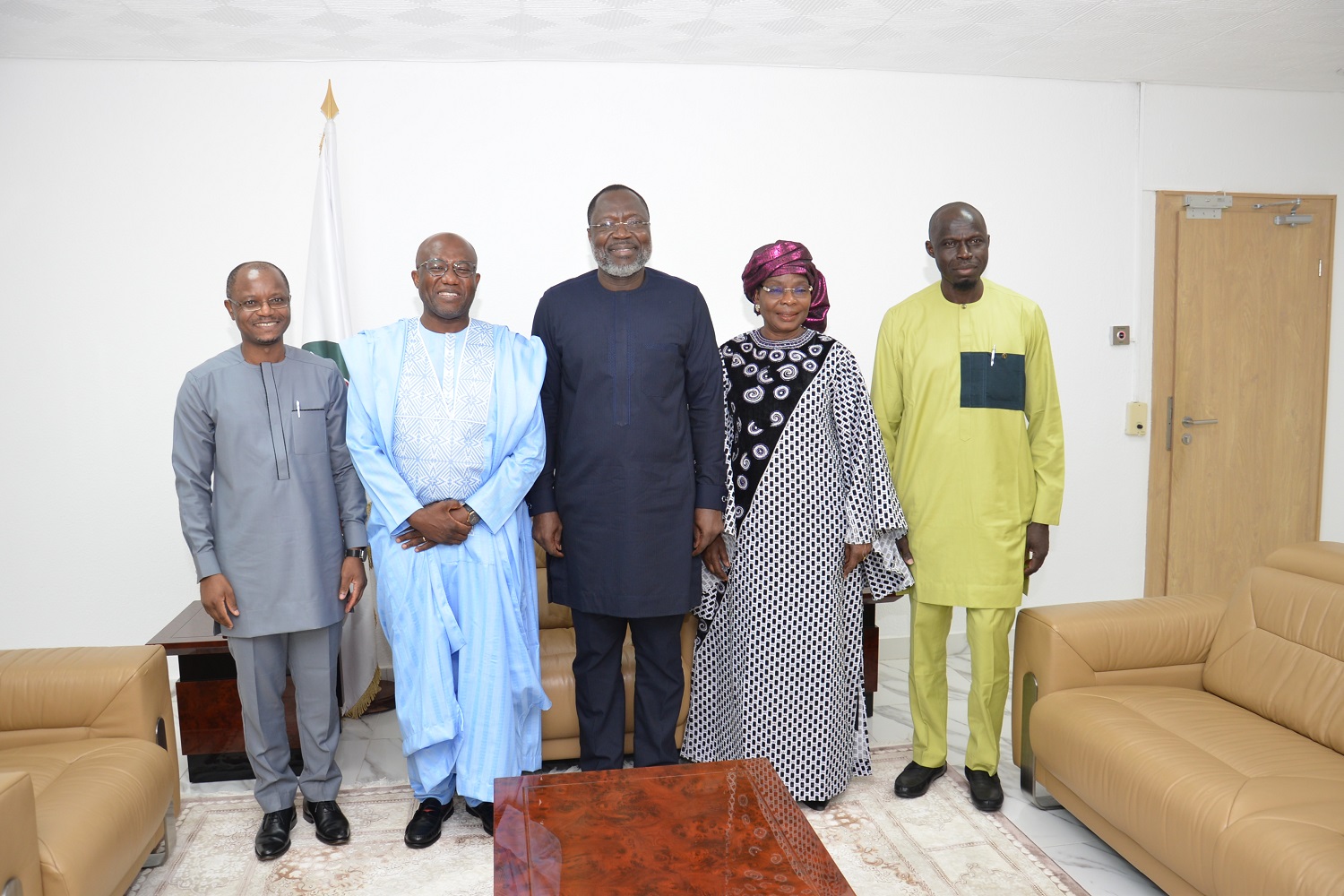ECOWAS and UNHCR sign an agreement to strengthen refugees’ protection and address internal displacements in West Africa
24 Oct, 2023The Economic Community of West African States (ECOWAS) and the UNHCR, The UN Refugees Agency today signed an agreement to strengthen their collaboration in protecting refugees, stateless and internally displaced persons in the region.
The President of the ECOWAS Commission, H.E Dr. Omar Alieu TOURAY and the Director of UNHCR Regional Bureau for West and Central Africa, Mr. Abdouraouf GNON-KONDE signed a Memorandum of Understanding (MoU), to strengthen the existing cooperation between the two entities. The revised MoU includes new areas of collaboration that have emerged since the initial MoU between the two institutions in 2001, namely the identification and protection of refugees found in dangerous migratory movements, statelessness, emergency management, as well as durable solutions to forcible displacements.
Violent conflicts, disasters and insecurity in several countries in West Africa continue to force people to flee their homes within the sub region and beyond. There are currently 6,976,470 forcibly displaced by conflicts and violence, and stateless persons in the ECOWAS sub region, including 6,352,346 IDPs and 624,124 refugees and asylum-seekers. Nigeria and Burkina Faso host the highest displaced populations with 3,578,996 and 2,062,534 individuals respectively. Niger hosts the highest refugee populations by far, with 325,419 individuals.
UNHCR-ECOWAS Commission joint workplan for 2023 makes the revision and signature of the current MoU, a priority. The signature event which was scheduled as part of the UNHCR Regional Director`s mission to Abuja, took place at the ECOWAS Commission Headquarters, Abuja, Nigeria. Both principals discussed the dire humanitarian situation facing refugees, stateless and internally displaced persons in the ECOWAS region, and ways to find possible durable solutions.
UNHCR and the ECOWAS Commission enjoy excellent working relations. UNHCR also collaborates closely with other ECOWAS institutions, especially with the ECOWAS Court of Justice and the ECOWAS Parliament, with which UNHCR has previously signed distinct MoUs to address forcible displacement issues within the ECOWAS sub region, building on the specific mandates of each of these institutions.
Mr. GNON-KONDE described UNHCR collaboration with the ECOWAS Commission as long-lasting, highly productive, and relevant in view of the current humanitarian context confronting the sub re region. H.E Dr. TOURAY on his part highlighted some of the efforts of the ECOWAS Commission to address the political and humanitarian crises in the region and stated that the ECOWAS Commission and Member states are working assiduously to tackle the root causes of the conflicts in the region through diplomatic and political engagements. The ECOWAS President expressed optimism that the Commission’s consistent commitment in these areas will yield positive outcomes.



